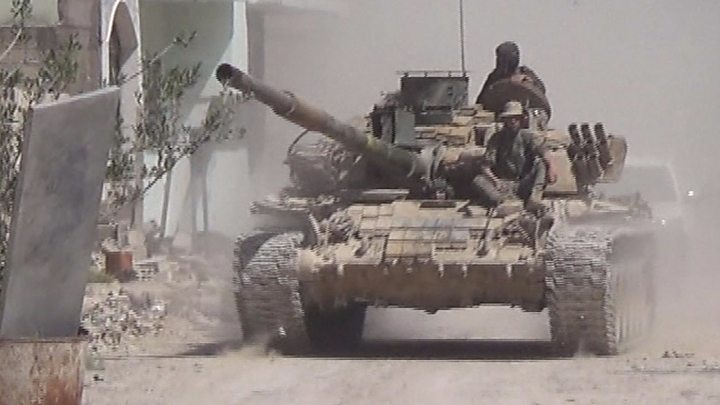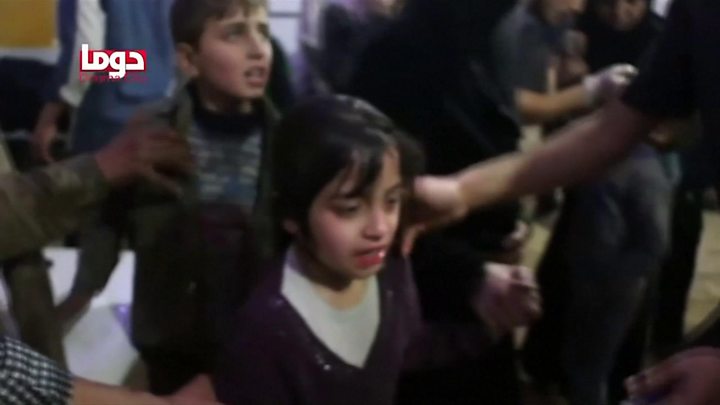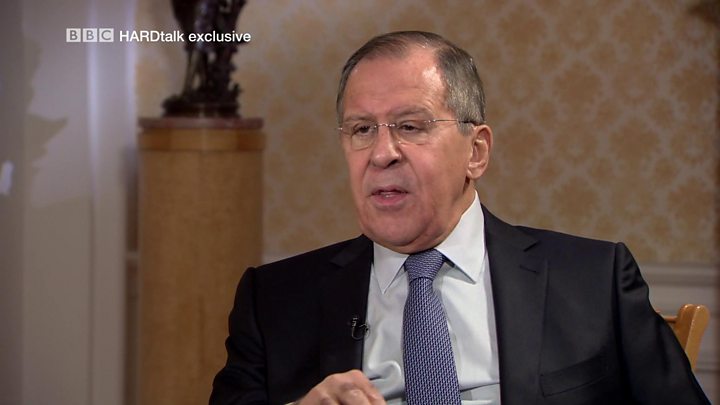
Efforts by international experts to examine the scene of a suspected chemical weapons attack in Syria have been delayed again after a UN risk assessment team came under fire.
Shots were fired when a security team visited Douma on Tuesday to prepare for the Organisation for the Prohibition of Chemical Weapons inspectors’ visit.
Nobody was injured and the team returned to the capital, Damascus.
Western states have accused the Syrian government of a chemical attack.
The US, UK and France bombed several Syrian government sites on Saturday in retaliation as the government and its main ally Russia denied chemical weapons had been used.
Western powers have suggested the government and Russia, which nominally control Douma after rebel forces withdrew, may be delaying the OPCW visit to tamper with evidence.
Local medical organisations and rescue workers say more than 40 people died in the incident in Douma, which happened when it was still held by the rebels.
What happened on Tuesday?
The UN security detail set out to perform reconnaissance in Douma ahead of the arrival of the actual inspectors, who were scheduled to go in on Wednesday.
Arriving in Douma, the UN team encountered a large crowd and later came under gunfire and heard an explosion, said the UK’s envoy to the OPCW, Peter Wilson, quoting OPCW chief Ahmet Uzumcu.
Image copyright
AFP
The OPCW inspectors are staying at the Four Seasons Hotel in Damascus
An official close to the Syrian government told Reuters news agency the UN team had been met by protesters demonstrating against Saturday’s missile strikes.
It is now unclear when the OPCW experts will be able to visit the site, Mr Uzumcu was quoted as saying.
The nine-strong team has been waiting in Damascus since Saturday.

US state department spokeswoman Heather Nauert warned on Tuesday that the delays in getting the OPCW experts into Douma to gather soil samples and other information would “further degrade” any evidence on the ground.
France’s foreign ministry said it was “very likely that proof and essential elements” were “disappearing from this site”.

Russian Foreign Minister Sergei Lavrov has told BBC News the allegations of chemical weapons use were “based on media reports and social media” and that the incident was “staged”.
What do we know of the 7 April incident?
On the day of the suspected chemical attack, Douma was still under rebel control, the last rebel-held town in the Eastern Ghouta region outside Damascus after a bloody government offensive.
Thousands of people were sheltering in basements from the government’s bombardment, when two bombs filled with chemicals were allegedly dropped several hours apart on two separate locations.
The US, UK and France say that, based on open-source information and their own intelligence, they are confident chlorine and possibly a nerve agent were used.
The government denies using chemical weapons and says the attack was fabricated.
A correspondent for US network CBS who gained access to the alleged attack site in Douma on Monday was told by one resident: “All of a sudden some gas spread around us. We couldn’t breathe. It smelled like chlorine.”
Another resident, who said many members of his family were among those killed, showed the CBS crew a yellow compressed gas canister that appeared to have punched a hole in the roof of the building. The canister looked similar to others photographed in the wake of other alleged chlorine attacks.
Saturday’s air strikes were carried out on three targets said to have been “specifically associated with the Syrian regime’s chemical weapons programme”.
The Syrian government denies having ever used chemical weapons but experts from the UN and the OPCW have ascribed four chemical attacks to the government during the civil war, including an attack on the rebel-held town of Khan Sheikhoun in April 2017 that involved the nerve agent Sarin.
Syria ‘chemical attack’: Shooting delays OPCW visit to site}

